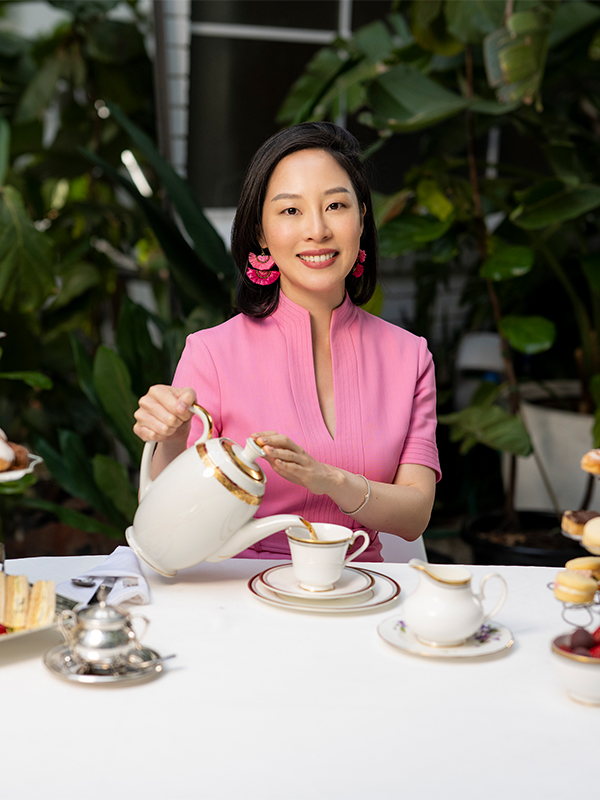“Here’s to strong women, may we know them, may we be them, may we raise them,” etiquette expert Sara Jane Ho solemnly tells one of her students, Raishel Jones, in her Netflix makeover show Mind Your Manners.
Jones was a stay-at-home mother who sought out Ho’s help in restarting her career. Mind Your Manners is in part a makeover show, but one lacking the hyperfocus on outward appearances, focusing instead on how learning etiquette can help people gain self-love and acceptance. Some might be skeptical that discovering the proper way to hold a fork or walk in flats might help them love themselves, but Ho has a simple yet unique approach.
“My philosophy is to help people better understand themselves and be more mindful of why they behave or feel a certain way,” Ho tells Sweet July. “It’s a journey of self-discovery, which can be very confronting, but we come out the other end kinder and more confident of ourselves and towards others.”
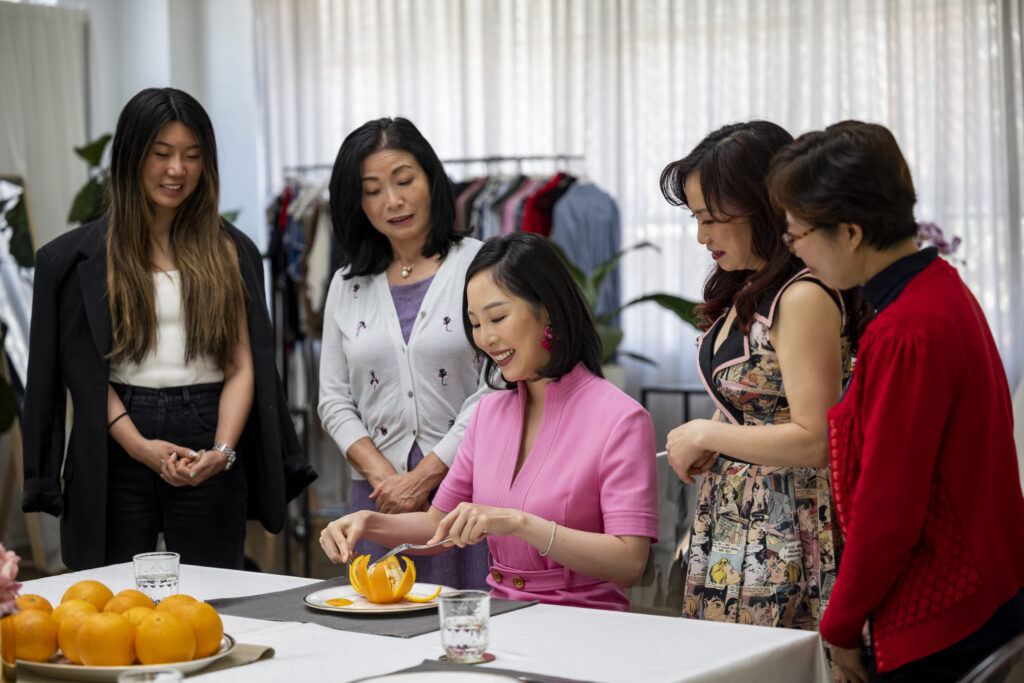
Ho, who studied at Georgetown University and received an MBA in business from Harvard University, is the founder of Institute Sarita, a finishing school with locations in Shanghai and Beijing that helps people of all ages learn more about proper social etiquette with lessons in pronunciation of foreign languages, fashion and dance. Her Netflix show puts these practices on the TV screen—she alternates between coaching her students in Australia and China, giving small lessons across all aspects of life, from dating apps to career. In some cases, she helps students process deep trauma like bullying, domestic violence or the loss of a parent.
And her methods prove to be successful: Ho’s student, Jones (just one of many), is now enjoying a successful career in Australia’s fashion industry.
Right now, Ho is writing her book, Mind Your Manners: A Guide to Social Fluency, which comes out in 2024, and she’s dreaming of more exciting ways to expand her etiquette empire. Sweet July caught up with Ho to discuss why you might want to learn about feng shui this Lunar New Year, how etiquette can help us love ourselves and connect to others, and why bridging the gaps between East and West practices in her field is so crucial.
How has filming the show changed your own life? I read you had a revelation that spurred you to break up with your then-boyfriend, which led to you meeting your current husband. How else has your work changed you?
Shooting Mind Your Manners was the most intense work I’ve done in my life. The intensity of production forced me to make life choices, to cut out any negativity that I had no bandwidth for. Sometimes, you need that push to force you to make that final decision. Also, this is a reality show, so every emotion is very real, every laugh and every cry rocks me to the core—just like every student I connect with.
The show was also life-changing in that it forced me to reflect on my own teaching method and dissect how I encourage each student to be their best self. In the last decade of running my finishing school, I’ve been caught up in the day-to-day, so the opportunity for reflection was very welcome.
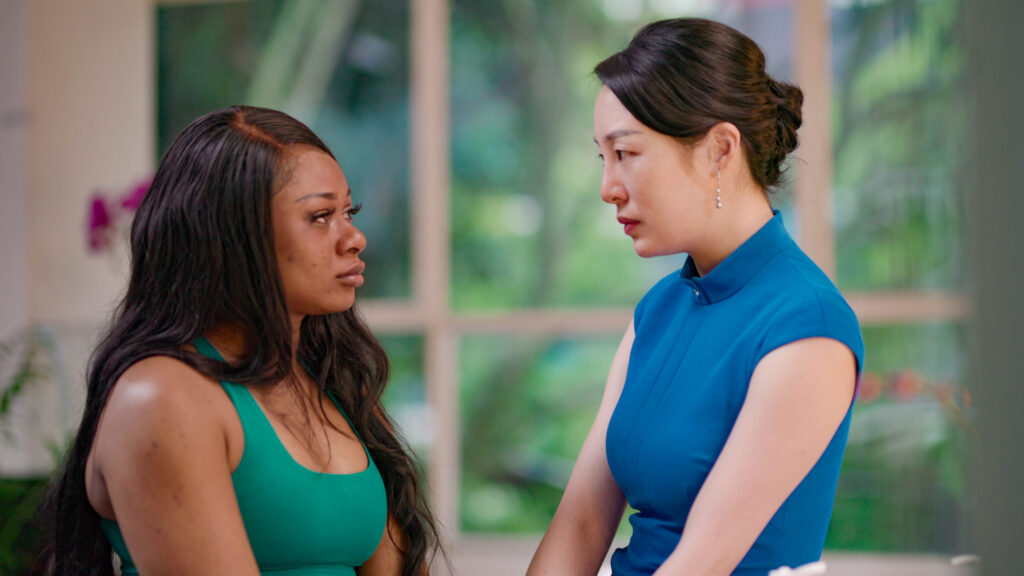
How can learning more about etiquette change our relationship with ourselves and help us discover self-love?
Etiquette is widely misunderstood to be a restricting convention when it is actually a tool for empowerment. Coming out of the lockdowns during the pandemic, people feel atomised and alone. We as human beings urgently need to connect with one another because it’s powerful and empowering to reconnect face-to-face and heart-to-heart, especially in a digital age that discourages us from doing so.
My approach is about increasing your confidence in social interactions. For many of my students, this breaks a cycle of loneliness and enables them to achieve a sense of belonging. Like behavioral therapy, it works from the outside in. By changing our behavior through the power of etiquette, we change our lives.
Which one of your students on the show has left a particularly significant impact on you?
Every student is a different student, but I would say Bunny’s story, her traumatic childhood being raised by an abusive father, is something that—as a woman living in China where domestic abuse rates are four times higher than in the U.S. (and that’s for reported figures)—really struck me to the core. Despite recent female empowerment in China, it is still very traditional in the home, and women are expected to be obedient subjects to their husbands rather than independent human beings. When we see someone who acts out in certain ways, a lot of the time they are compensating for a childhood trauma. Bunny’s anger was pent up for decades—and a way of protecting herself from the hurt her father caused her family. The mahjong scene, when she realizes this, is particularly poignant for me.
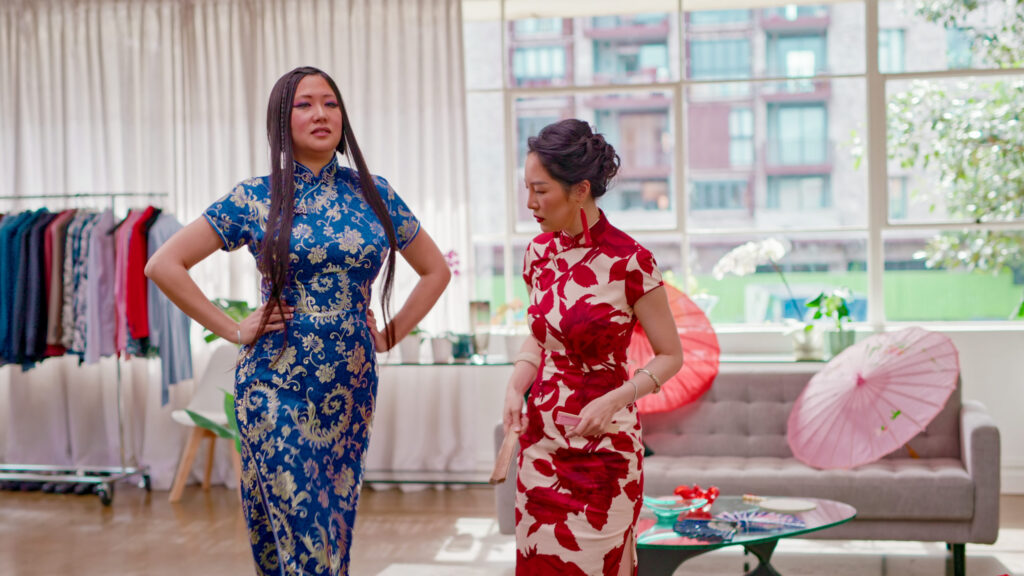
Why do you think an East-meets-West perspective is so vital in the 21st century, especially with the work you do?
Communication and understanding is the first step to respect. As a product of both cultures—I was raised in Hong Kong and now live in Mainland China, but was educated in the U.S.—I have always seamlessly traveled between both and sought to help each better understand the other. I bring that out very organically in my show, introducing Western table manners to my Chinese ladies but also introducing Chinese healing and feng shui to my English-speaking students.
Etiquette is contextual, so it differs depending on the culture, situation and people you are with. I am practicing different etiquette every time I switch context. For example, in a Western fine dining setting, I will drink my tea silently. But in a Chinese setting, I will make a subtle slurp from the teacup which is a sign of savoring the tea. I would also, when being served Chinese tea by the host, tap my index and middle fingers on the table near my teacup as a sign of thanks. But if I did that in the West, it would cause confusion.
How does the concept of feng shui come into play in your work?
I grew up in Hong Kong with feng shui masters running around the house, so I very naturally brought it into my student’s home visits in Mind Your Manners. Entering the Chinese New Year is always a good opportunity to redecorate your house according to feng shui. Firstly, a home with good feng shui means a home that should feel comfortable. An all-white home with no color is not comfortable because it’s not balanced. A home that is all wood furnishing is also out of balance. Dark or creepy artwork isn’t balanced because that brings “yin” (dark) energy into your home. It’s best covered up and put in storage. Definitely do not put your pet or parent’s ashes in your home—that is a clash of yin and yang worlds. Their yin (dark spirit) energy should be in a proper burial place, which is yin for them so they can rest in peace. Their yin energy should not be brought into your yang human energy space, because it can cause illness, negativity and bad luck.
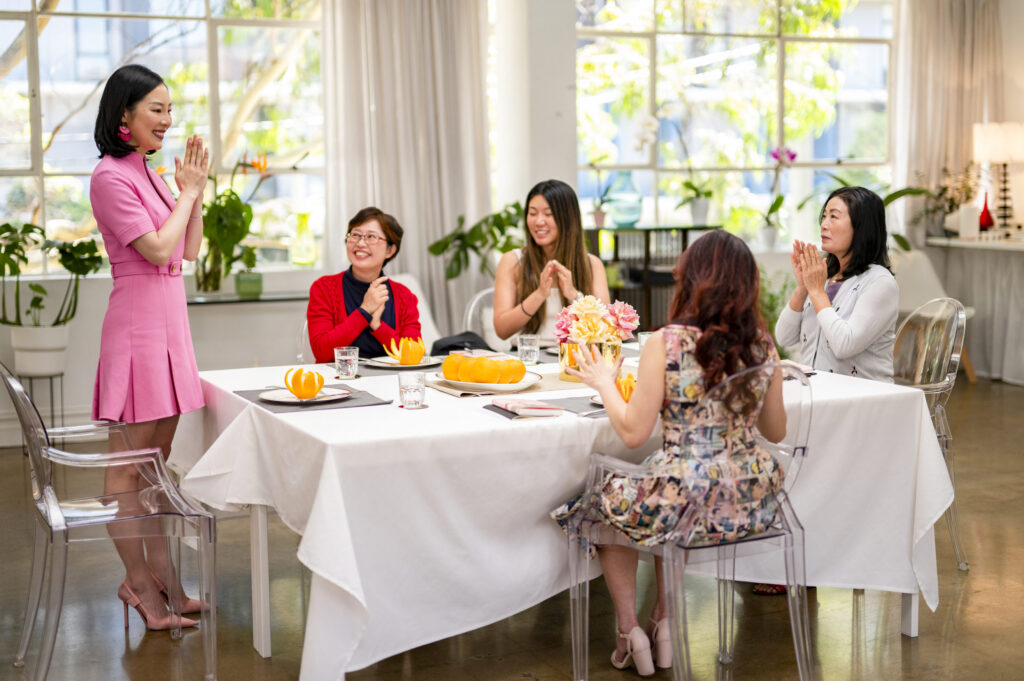
What are some lessons you learned from your mother that you find most helpful and resonant over the years?
My mother said, “Who you are and how you look today is a result of how you’ve lived your life the last ten years. So think about your habits now, because that’s how you’ll look in ten years.” In the Christy episode for Mind Your Manners, her biggest regret is suntanning in Hawaii as a young woman, which has led to deep wrinkles on her skin in middle age. One habit my mother drilled into me when I was only a tween was to apply SPF every morning before I leave the house. People do not decide their futures; they decide their habits, and their habits decide their futures.
This interview has been edited and condensed for clarity.
